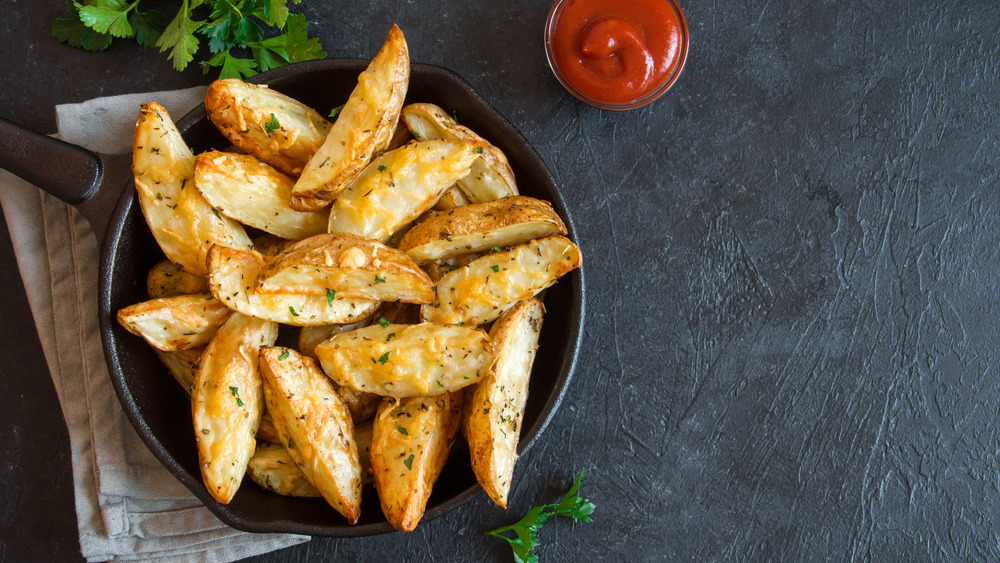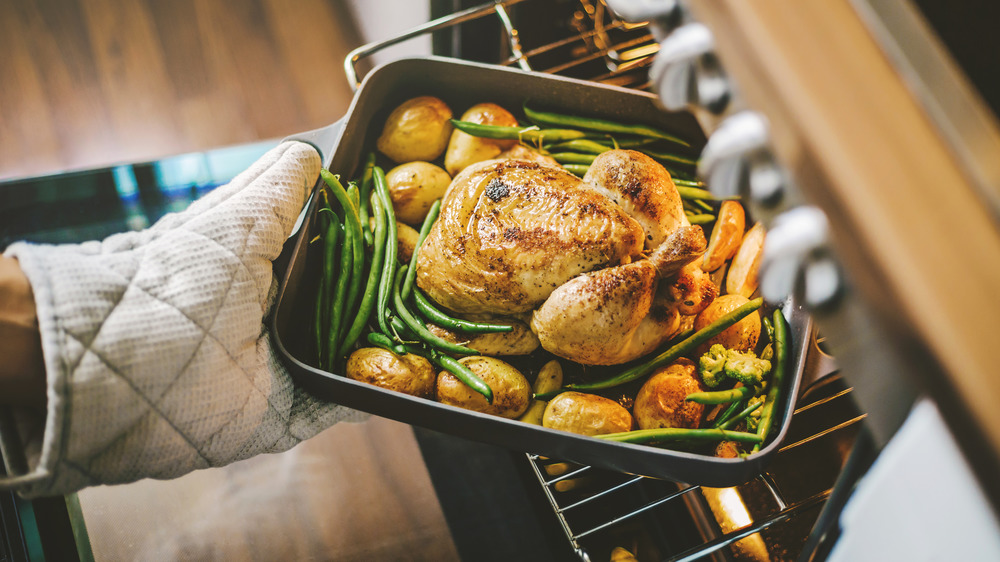How To Know Which Oil You Should Use For Roasted Potatoes
The ideal roasted potato is heavenly: crispy but not greasy, soft inside, perfectly seasoned, and, above all, never burned. And though a roast potato might seem pretty straightforward – you just toss in oil and throw 'em in the oven on high, right? In fact, there are more complicated considerations at play here. Perhaps the most important component of a perfectly roasted potato is the oil you choose. When smoke reaches the high temperatures preferred for roasting, it can get too hot, smoke, and ultimately burn (via Foodsguy). No one likes a burnt potato.
A good oil for roasting potatoes has a high smoke point, which means it won't burn at high temperatures and a flavor that won't overwhelm the subtle taste of potato. According to Foodsguy, the best oils for roasting potatoes include vegetable oil, canola oil, and olive oil, which will give your potatoes a crispy exterior without burning on their surface at your preferred roasting temperature. These oils are also neutral in flavor, which means the potatoes' flavors will still come through.
More tips and tricks for perfect roast potatoes
Oil isn't the only thing that makes a perfect roasted potato, though, so pay close attention to a few other tips and tricks. According to Serious Eats, which did some appropriately serious testing in their kitchen, the key to a crispy outer layer is boiling large chunks of potato in alkaline water, which means water that is less acidic than usual, because it "breaks down their surfaces, creating tons of starchy slurry for added surface area and crunch." To achieve this, they add a little baking soda to the water. The large chunks of potato enhance the contrast between crunchy outside and soft, buttery inside.
Then there's a question of when to salt the potatoes. Serious Eats' recipe incorporates salt into the boiling water, into the herb-filled fat they use to coat the potatoes, and then again after the potatoes are roasted. But some, like the consumer group Choice, advise against salting potatoes until the very end (via The Sun). Salt brings out moisture in potatoes, which is the enemy of crisp, they say, so a shake of salt when they're hot out of the oven will ensure the non-soggy potatoes get a "glass-like crunch" on the outside. Another tip was to dry out the potatoes a little bit in the fridge before putting them in the oven, which also contributes to that all-important crispy-factor. Whichever technique you experiment with, though, these potatoes probably won't last long.

